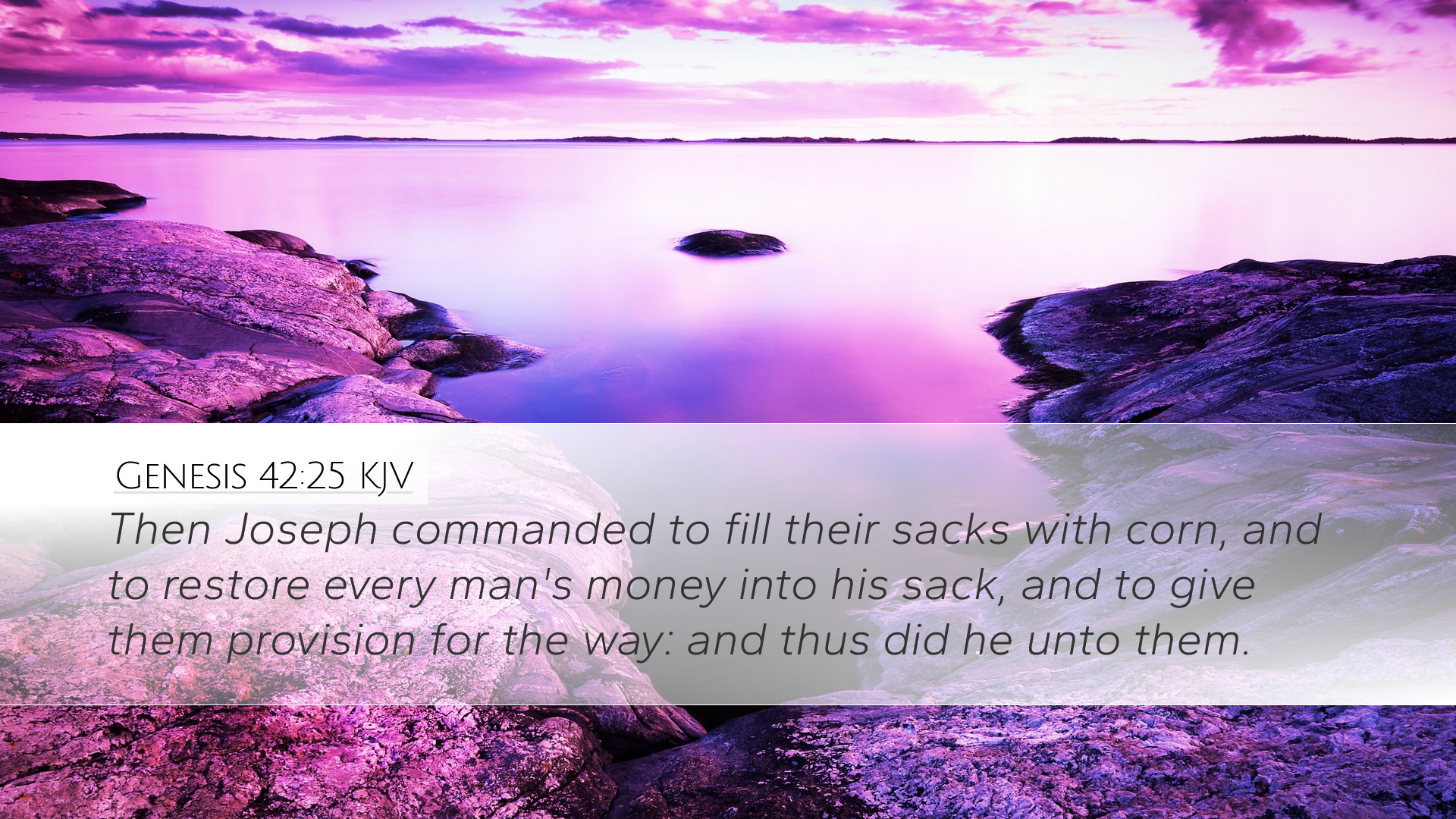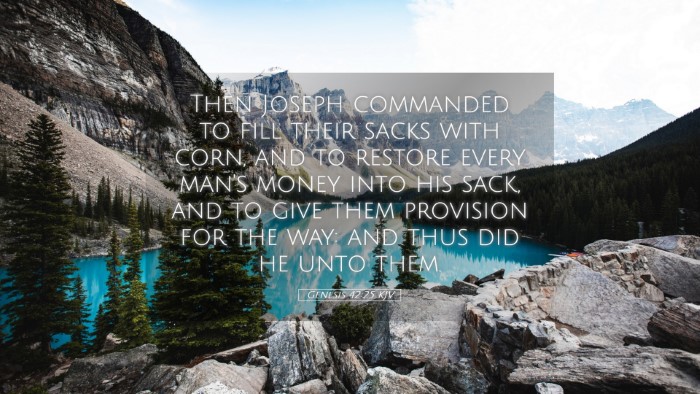Commentary on Genesis 42:25
Verse Text: "Then Joseph commanded to fill their sacks with corn, and to restore every man's money into his sack, and to give them provision for the way: and thus did he unto them."
Introduction
This passage from Genesis 42:25 takes place during a pivotal moment in the story of Joseph and his brothers. After the brothers of Joseph had come to Egypt to buy grain during a famine, Joseph, now a powerful figure in Egypt, treated them with suspicion. This verse illustrates Joseph’s complex character and the unfolding of God’s providential plan throughout the narrative.
Contextual Analysis
Joseph's position in Egypt, second only to Pharaoh, reflects God's sovereignty in his life. This moment speaks volumes about reconciliation, divine providence, and the nature of forgiveness.
Joseph's Actions Explained
- Provision for the Brothers: By filling their sacks with grain, Joseph demonstrates an unexpected benevolence towards his brothers. This act highlights an important theme of grace that runs throughout the biblical narrative.
- Restoration of Money: Joseph's choice to return their money signifies a complex blend of justice and mercy. From a theological standpoint, this can be seen as a foreshadowing of the grace found in the New Testament, encapsulating the idea that God provides for His people abundantly.
- Provision for the Journey: The provision given for the way emphasizes God’s care. Albert Barnes notes that Joseph’s kindness stands in stark contrast to the brothers’ previous actions against him.
Theological Implications
This verse invites deeper theological reflection concerning God’s providence and the dynamics of brotherhood and reconciliation. Joseph’s actions reflect a loving father who desires the good of his children, even those who have wronged him.
Matthew Henry's Insights
Matthew Henry emphasizes the importance of recognizing God’s hand in all circumstances. The act of providing for his brothers, despite their past sins against him, illustrates a profound level of mercy rooted in divine providence. Henry notes that Joseph's intention was not merely to aid them but to lead them toward repentance.
Albert Barnes' Commentary
In his commentary, Barnes suggests that this act of filling their sacks with grain also serves as a means to test the character of the brothers. He conveys that God's providence is at work here and that Joseph, while acting out of love, is also keenly observing their responses.
Adam Clarke's Interpretation
Adam Clarke offers a perspective on Joseph’s wisdom in dealing with his brothers. He notes that such an act would provoke reliable reflections on the brothers' guilt and previous actions, fostering a path toward true repentance and reconciliation.
Personal Reflections for Pastors and Scholars
For pastors and scholars, this narrative serves as an important lesson on the nature of forgiveness and mercy. It challenges leaders in the faith to extend grace even in difficult circumstances and to recognize the opportunities for reconciliation that God may be presenting.
Lessons from Joseph's Actions
- Embrace of Grace: Joseph's actions encourage those in pastoral roles to embrace grace as a central tenet of their ministry.
- God’s Continuous Provision: Recognizing that God’s provision is often a part of leading others towards repentance and restoration.
- Sensitivity to Others’ Needs: The necessity of understanding and responding to the deeper emotional and spiritual needs of individuals.
Conclusion
Genesis 42:25 is more than just a historical narrative; it is a revelation of God's love and mercy woven through Joseph's actions. By examining the layers of this account through public domain commentaries, we are provided with insights that remain relevant for understanding the heart of God, the nature of forgiveness, and our own roles as agents of grace in a fractured world. It challenges us to consider how we too can embody kindness and mercy, following the example set by Joseph in the face of adversity.


